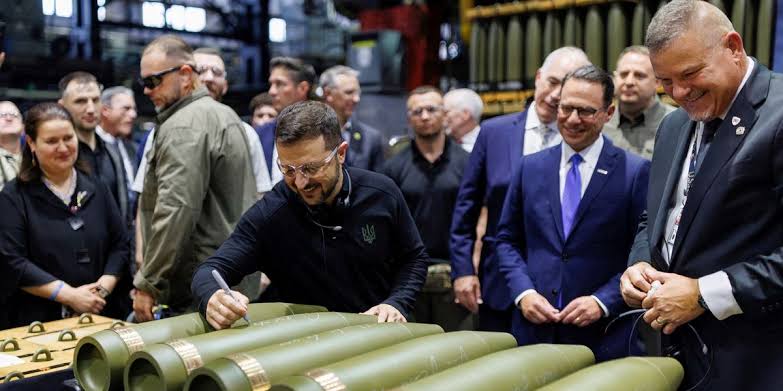
Do I Stand with Ukraine & Zelenskyy?
Ukraine and Zelenskyy made the decision to align with the West, actively seeking NATO membership—a military alliance whose primary purpose has long been to counter Russia in political, economic, and military spheres.
But let’s take a step back.
During the Clinton and Bush administrations, Russia itself explored the possibility of joining NATO. After 9/11, Moscow even provided logistical support to the alliance, opening its airspace to U.S. planes for bombing campaigns in northern Afghanistan. However, these gestures were ignored, and Russian membership was ultimately denied.
As it became clear to Putin’s administration that NATO had no intention of abandoning its Cold War posture, Russia made it clear—repeatedly and unequivocally—that Ukrainian NATO membership would cross a red line. A hostile military alliance expanding to Russia’s border was a direct security threat.
For over two decades, this warning has been ignored. Instead, NATO expanded eastward, orchestrating events such as the CIA-backed “Orange Revolution” in 2004, which paved the way for an anti-Russian government in Ukraine.
Since then, Russia has continuously warned of the consequences of Ukraine’s NATO aspirations, making it clear that military action could be necessary to protect its borders. The war in Donetsk, which erupted in 2014, was a direct result of this geopolitical struggle. The region, home to a predominantly Russian-speaking population, sought to break away from Ukraine, anticipating the country’s pro-Western shift. In response, Ukraine deployed the ultra-nationalist and openly fascist Azov Battalion, escalating the conflict into a brutal civil war.
It is also important to recognise that Ukraine is viewed differently from other former Soviet republics in Russian geopolitical thinking. Unlike Poland, Lithuania, or other Eastern European nations, Ukraine has historically been seen—rightly or wrongly—as an integral part of Russia itself. The country has a significant ethnic Russian population, with deep historical, economic, social, and religious ties to Russia. This is not a distant foreign land to Moscow; it is a region that has always been culturally intertwined with Russia. Unlike with Poland or the Baltic states, Russia has never had territorial disputes with these countries, yet it has always made clear that Ukraine is a red line. The West’s failure to acknowledge this distinction has only fueled the crisis.
This conflict eventually led to the Minsk Agreements, which were intended to bring peace. However, after Zelenskyy came to power in 2019, he deliberately undermined these agreements. Instead of de-escalating tensions, he intensified his push for NATO and EU membership—all while the war in Donetsk continued. Russia, in turn, increased its military presence near Ukraine’s border, using it as leverage to demand security guarantees from the West.
Moscow sought a diplomatic resolution, demanding assurances that Ukraine would never join NATO. But the West ignored these concerns, continuing to isolate Russia over its actions in Crimea and Georgia. Meanwhile, Zelenskyy fueled the crisis by welcoming NATO leaders to Ukraine, encouraging arms shipments, and reinforcing his country’s alignment with the Western military bloc.
Eventually, the inevitable happened. After 20+ years of ignored warnings, dismissed security concerns, and NATO’s continued encroachment, Russia launched its Special Military Operation—a last but necessary resort to protect its borders from a hostile alliance.
Zelenskyy and Ukraine are not innocent victims. They played a central role in escalating the situation, emboldened by NATO and the Western military-industrial complex, which requires perpetual conflict to justify trillions in arms expenditures.
Russia once sought partnership with NATO. It extended a hand of cooperation in the 1990s and early 2000s, only to be rebuffed—because peace does not serve the interests of those who profit from war. Ukraine was fully aware of the risks it was taking. Now, it is paying the price.


